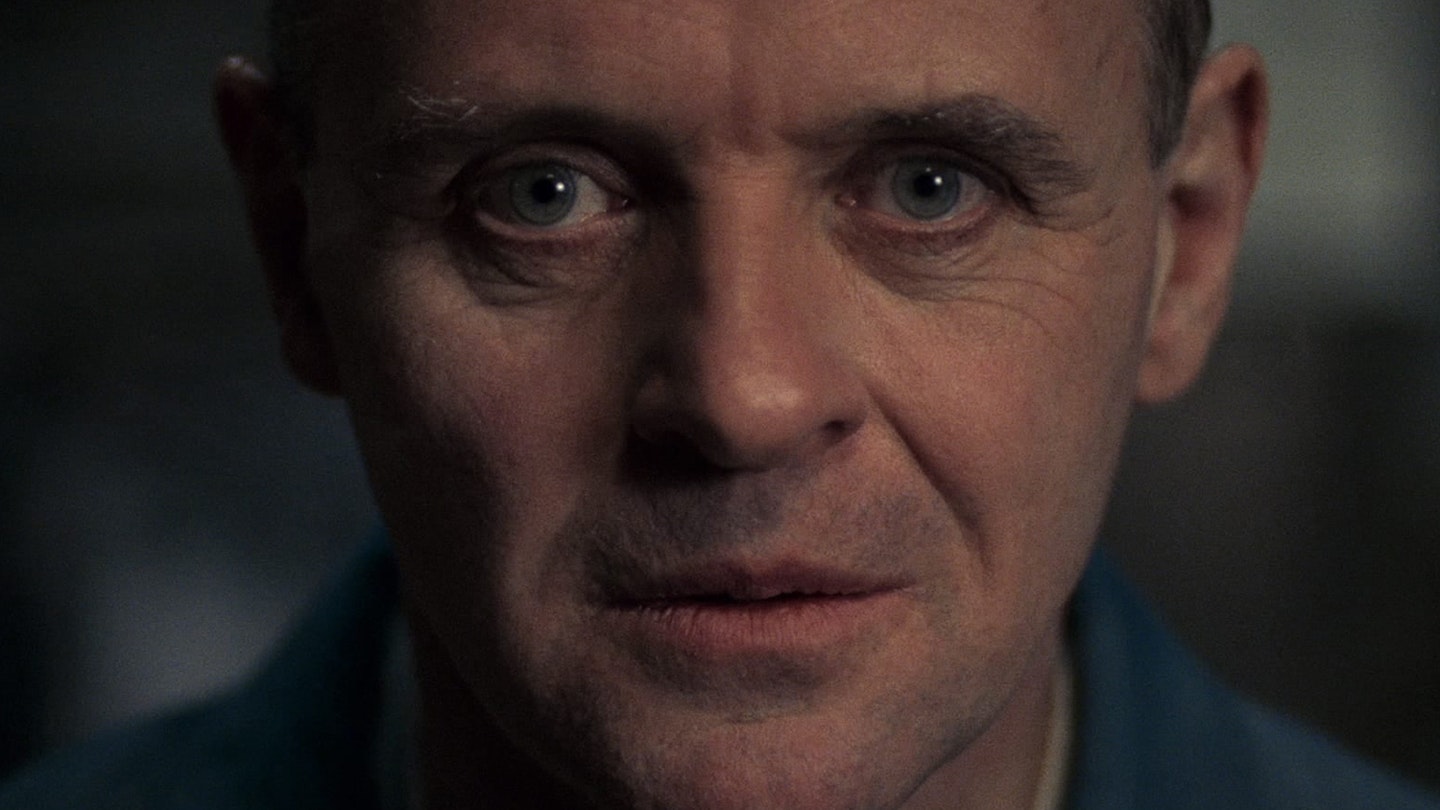Thirty years ago, Jonathan Demme’s The Silence Of The Lambs hit the big screen and made an indelible dent on cinema – becoming a rare (psychological) horror to bag all the biggest Oscars, and featuring iconic, all-time-great performances from Jodie Foster and Sir Anthony Hopkins as FBI rookie Clarice Starling and devious cannibal Hannibal Lecter, respectively. To celebrate three decades of an impeccably-crafted serial killer thriller that still chills to this day, read the original Empire feature getting under the skin of The Silence Of The Lambs, originally published in June 1991.
Anthony Hopkins is terrorising the 20 million American filmgoers who have already paid more than $100 million to be enthralled by him in Jonathan Demme's sensational movie, The Silence Of The Lambs. Rod Lurie meets Dr. Lecter, Demme and co-star Jodie Foster to get a second opinion on this year's Psycho...
"I loved the book, I thought it was a good picture," says the somewhat punchdrunk 48 year-old director, previously best known for his work on such disparate projects as Mafia pisstake Married To The Mob, the Spalding Gray monologue Swimming To Cambodia and Talking Heads' Stop Making Sense. "But it's been number one for five weeks now, for heaven's sake. I was hoping it would make its money back. This is ridiculous."
There was scarcely a month during 1988 when Thomas Harris' novel, The Silence Of The Lambs, was not on or around the top of the New York Times list of America's bestselling books. The sequel to Harris's FBI thriller Red Dragon – which Miami Vice director Michael Mann would adapt into the impressive if somewhat small-scale cult video hit Manhunter – was one of the genuine publishing sensations of the late '80s, its mix of sheer terror and complex psychological characterisation stirring the imagination of The Great American Public, among them one Gene Hackman, with the veteran actor – on the prowl for a project with which to make his directorial debut - dutifully snapping up the film rights to the novel.
The lack of a quality-control department in Hackman's life is, of course, legendary, the great man having put his name to a quite bewildering number of box office and critical catastrophes over the years. Even in such a glorious litany of wobbly decision-making, however, there can surely be nothing to rival his disentanglement from Project Silence Of The Lambs. For, although Gene Hackman had possession of the much sought-after rights to this extraordinary novel, he then decided that, er, he didn't want them after all.
This book which Gene Hackman once owned deals with young FBI trainee Clarice Starling, the keen student manipulated by her superiors into forging a relationship with the wonderfully insane Dr. Hannibal "The Cannibal" Lecter, the former psychiatrist now incarcerated for a grisly series of murders in which he had eaten various parts of his victims' anatomy. The FBI team – led by veteran Lecter-hunter Jack Crawford – accurately assume that the bond between Starling and the brilliant Lecter will lead the mad doctor to help them hunt down yet another serial killer – a man who murders size 14 women and then skins them so that he may well, as Lecter delicately puts it, "have a coat with tits on it".
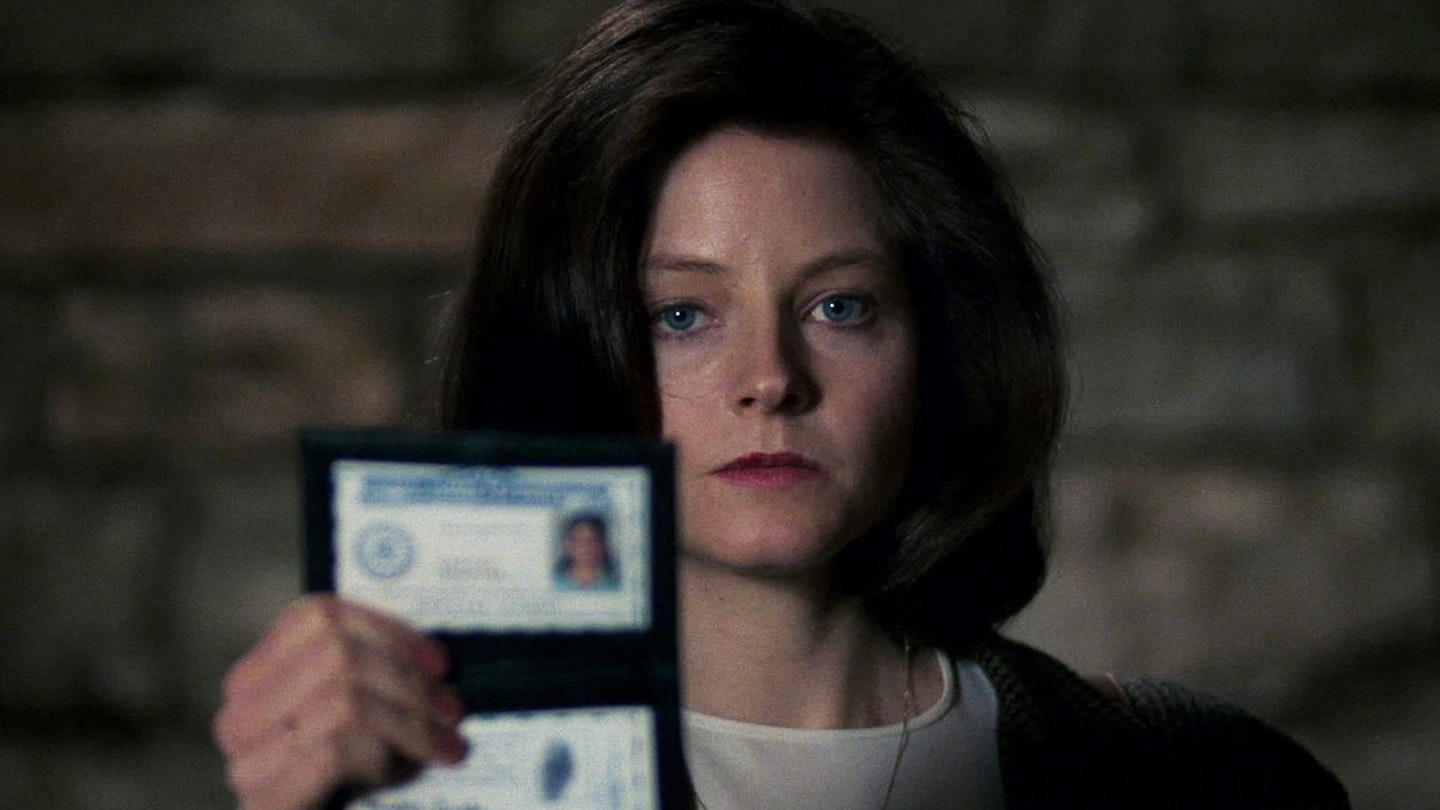
"It's one of the most cinematic books I've ever read," confirmed Hackman at the time of purchase. "As I read it, the movie was clicking in my mind."
The Silence Of The Lambs was the first property the 61 year-old actor had ever owned outright and, as such, he would direct, produce, and cast the film. Michelle Pfeiffer was pencilled in for the role of Starling, John Hurt was down for Lecter and Hackman himself would play Jack Crawford. Big stars, hot story. It couldn't miss.
Fast forward to Oscar night, March 1989. Gene Hackman is sitting in one of the front rows of the Shrine Auditorium in downtown Los Angeles. His performance as an FBI agent in Alan Parker's Mississippi Burning has earned him an Oscar nomination, although he eventually loses out to Dustin Hoffman's autistic savant from Rain Man. Mississippi Burning is so heavily nominated in so many categories, however, that what Hackman sees, along with the rest of the world, is clip after clip from this dark, brooding, violent account of man's inhumanity to man.
I read the script. And - boom! - I knew intuitively how to play him. – Anthony Hopkins
Within days, Hackman had bowed out of The Silence Of The Lambs – a film he could see was destined to be yet more bleak and violent than Mississippi Burning – his commercial feet clearly plummeting in temperature. Shortly afterwards, the rights were bought by Orion Pictures, who promptly passed control to Jonathan Demme.
"I wouldn't have offered it to me," chuckles Demme, who admits that there was nothing in the frivolity of his earlier films – bar perhaps his 1974 women's prison movie Caged Heat – to suggest that here was the man to direct a nihilistic thriller such as The Silence Of The Lambs. Once asked, however, he had no doubts.
"I loved the idea of a female protagonist," says Demme. "It's more interesting with a woman, because that's a point against her from the start."
When Demme signed his contract, it was no secret that he was very keen indeed on the idea of Pfeiffer as Clarice, even though the 34 year-old actress is at least ten years too old for the part. Pfeiffer, however, soon came to the same conclusion as Hackman, and left the project, professing to being "unable to come to terms with the overpowering darkness of the piece".
Enter Jodie Foster, famous for her forays into varying degrees of overpowering darkness, starting, of course, with her Oscar-nominated role as the 12 year-old Times Square prostitute in 1976's Taxi Driver.
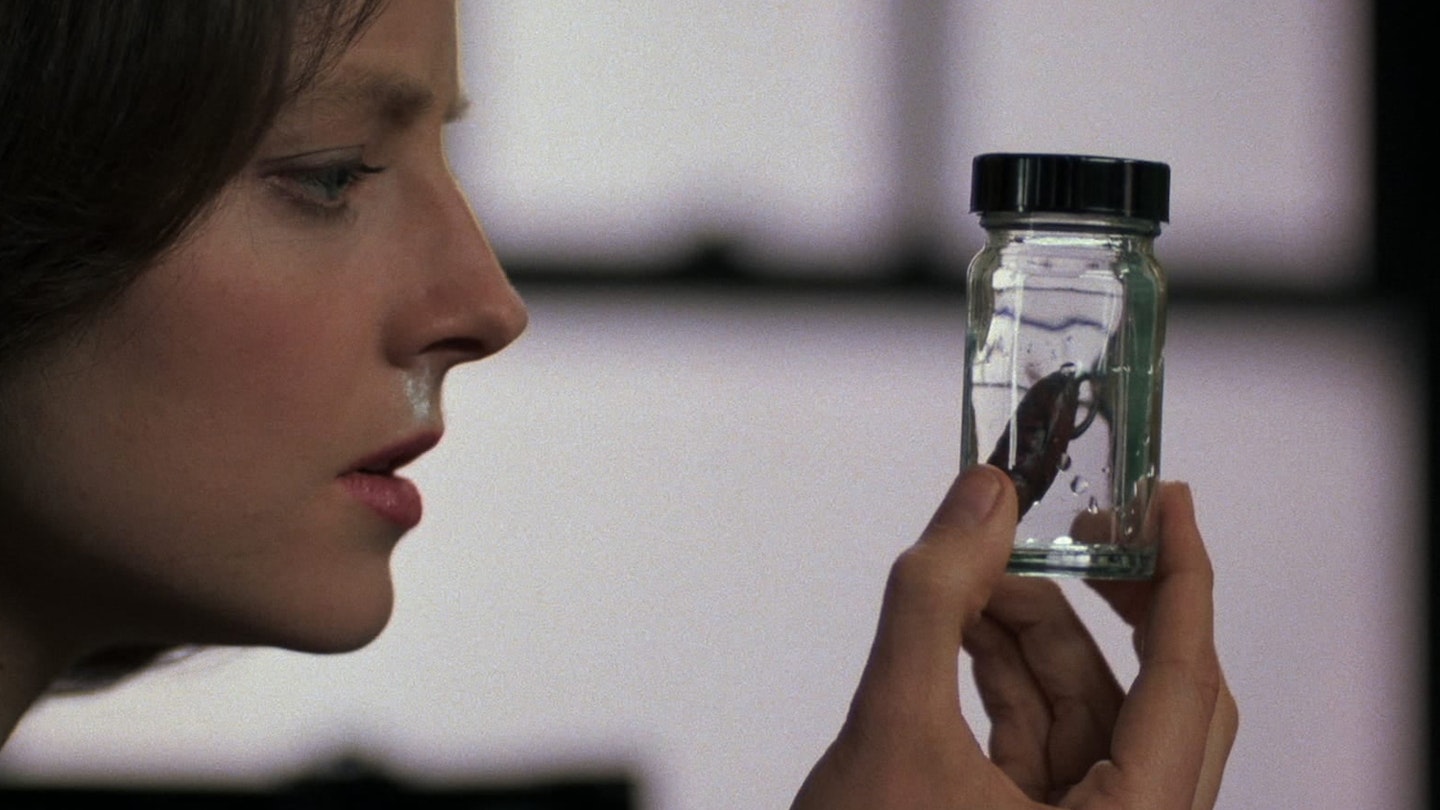
"It wasn't difficult to deal with," says Foster now of that particular role. "My family did not believe in sheltering information from me. It was a strict environment in some ways and also very classically orientated. My mother didn't believe in sheltering me from some of my own truths and I was quite aware of what that film was all about. It didn't shake me up in the way that many 12 year-olds might be shook up."
Since then, of course, Foster has specialised in this sort of harrowing material. In The Hotel New Hampshire she is gang-raped and has an incestuous affair with Rob Lowe. In Siesta she sleeps with a dead woman. In Five Corners, she is merely the object of Jon Turturro's violent obsession. And then there is The Accused.
"I don't mind doing comedies, I'm just not fulfilled by them," she offers by way of explanation. "I guess I like to slap reality around. I love those scenes where I go through dire, human, survival situations. That's my job. I love it. I love seeing things through eyes that most people cannot look through."
Almost inevitably then, Jodie Foster was quick to lobby Jonathan Demme for the part of Clarice Starling in The Silence Of The Lambs, confident that Michelle Pfeiffer would never commit herself to such a project.
"There are reasons I want to make this movie," she told Demme at their very first meeting. "They are very personal reasons, not just because it's a good part."
To fully understand those reasons, it is necessary to go back for a moment, to the evening of March 30, 1981.
[object Object]---
"A great change came over me, or so I am told. I started perceiving death in the most mundane but distressing events. Being photographed felt like being shot; it still does. I thought everyone was looking at me in crowds; perhaps they were. Every sick letter I received I made sure to read, to laugh at, to read again. People were punishing me because I was there. They were sending bullets, pulling triggers, exercising the simple law of cause and effect."
These are the words of Jodie Foster, written in Esquire magazine in December 1982, nearly two years after the cherubic John Hinckley pumped a pair of bullets into the recently-elected President Ronald Reagan as a show of his undying devotion to his favourite actress. He had been inspired to carry out this historic act, said Hinckley, by the film Taxi Driver, and was specifically attempting to ape Robert DeNiro's Travis Bickle character who, of course, attempted much the same thing in the film. The article was, said Foster, part of a cathartic process, a release of demons, and those were to be her very last words about the fruitcake Hinckley, another obsessed fan called Michael Richardson, the assassination attempt or anything else to do with the subject.
Don't think for a moment that this was anything but a character-and-story-driven film. It's what distinguishes it from a slasher film. – Jodie Foster
With such a history, however, it is hardly surprising that Jodie Foster was so keen to become involved with the proposed film version of The Silence Of The Lambs – a movie, after all, that centres in on the business of coming to terms with a killer whose behaviour appears to be wholly irrational. There would, though, be some ground rules.
In his 1988 Married To The Mob, director Demme had painted the FBI to be every bit as useless as the underworld hooligans they were attempting to lock up. Since the FBI had earned Foster's undying respect by watching over her after Richardson had issued a death threat and even attended a play she appeared in at Yale University, it was clear that the actress could hardly participate in any film that presented the Bureau as gorillas in dark suits and shades.
"I know I don't need to say this to you," said Foster to Demme, going on to do just that, "but I just need to say in all responsibility to women being victimised all around the world that you can't portray those FBI people as goofy Republicans. If you want me to be your hero, you've got to portray them in the correct way."
And there was one more thing. The violence would have to be kept to a low chill – a hard task when making a film adapted from such grisly material. To its credit, however, The Silence Of The Lambs probably looks a lot worse in the mind's eye (and in Harris' novel) than it does in its finished version on the big screen.
"Jonathan Demme made it a point to cut away from the really horrible scenes," says Anthony Hopkins, whose hair is whiter and skin more tanned than his subterranean screen counterpart, Dr. Hannibal Lecter. "He didn't focus on a scene where my character slices off somebody's face. He did show in detail an autopsy scene, because that was an important reality. But for the most part, Jonathan just shows you glimpses of violence. He likes to deal much more with psychological terror. Now this I find truly frightening."
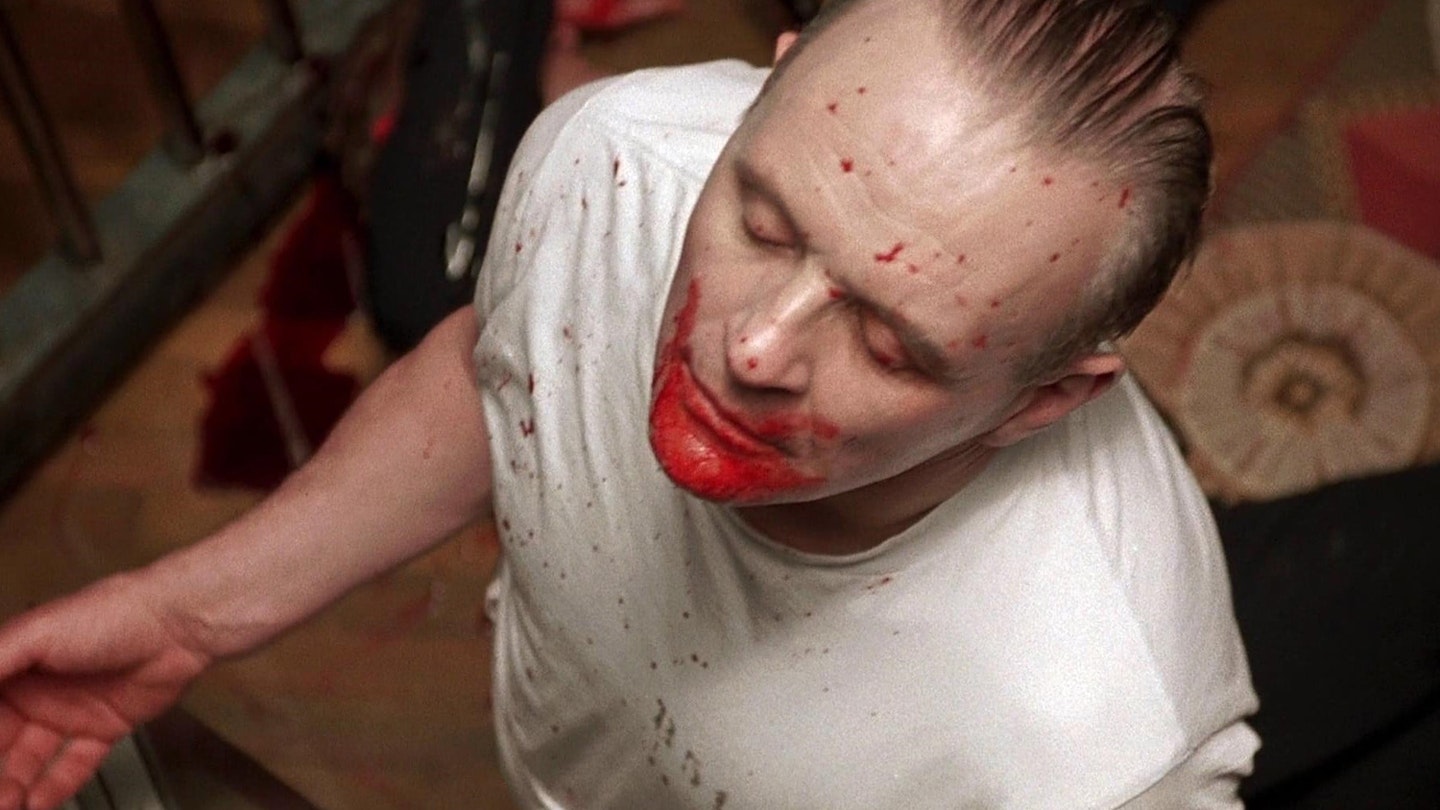
The suddenly big-league Demme is quick to agree with his unlikely leading man.
"Violence was not that necessary an element within the film," he says, leaning forward and gesturing with his hands. "The terror is represented through characterisation. We'll take Tony Hopkins because he's a perfect example. Here's a character, Lecter, who we know has committed horrific crimes. But Tony gives him this humanity, this compassion. There's a scene in the film where Clarice opens up to him and tells him about a crisis from her past. And Lecter cares. He cares. It makes his character very complicated, and somewhat unpredictable."
Foster too is keen to counteract any claims that The Silence Of The Lambs is little more than a particularly clever variation on the standard slasher flick.
"Don't think for a moment that this was anything but a character-and-story-driven film," she cautions. "It's what distinguishes it from a slasher film. The thing that I really love about Clarice Starling is that this may be one of the first times that I have seen a female hero that is not a female-steroid version of Arnold Schwarzenegger. This was not a woman running around in her underwear with a machine-gun. Clarice is very competent and she is very human. She combats the villain with her emotionality, intuition, her frailty and vulnerability. I don't think there has ever been a female hero like that."
Nor, indeed, has there ever been a villain quite like Lecter.
"I read the script," recalls Hopkins, the man often tipped as Britain's natural successor to those other great boardtreaders-turned-Hollywood hired hands, Burton and Olivier. "And – boom! – I knew intuitively how to play him. I knew how he looked and how he sounded. There were two, maybe three voices that I heard. I thought of him as a combination of Katharine Hepburn, Truman Capote and HAL from 2001. I don't know why the sound came to my head. In terms of his physical appearance, it was Jonathan's idea that he be pale and he convinced me to stay out of the sun. It was my idea to give him dark, slicked-back hair. I also wanted him to wear a very tight prison uniform. That would suggest total control. After my first make-up session, I went to the mirror and thought" – he stretches out his arms in a broad sweep – "this is it."
"I love the relationship between Lecter and Clarice," says Foster by way of response. "I think she has a respect for him because she sees him as a human being and because she is not judgmental. That doesn't mean that she condones his behaviour or that she doesn't fear him. But she wants to know him. The one thing that she has in common with Lecter is dignity. Clarice is a person escaping mediocrity. The one thing Clarice cannot handle is being common."
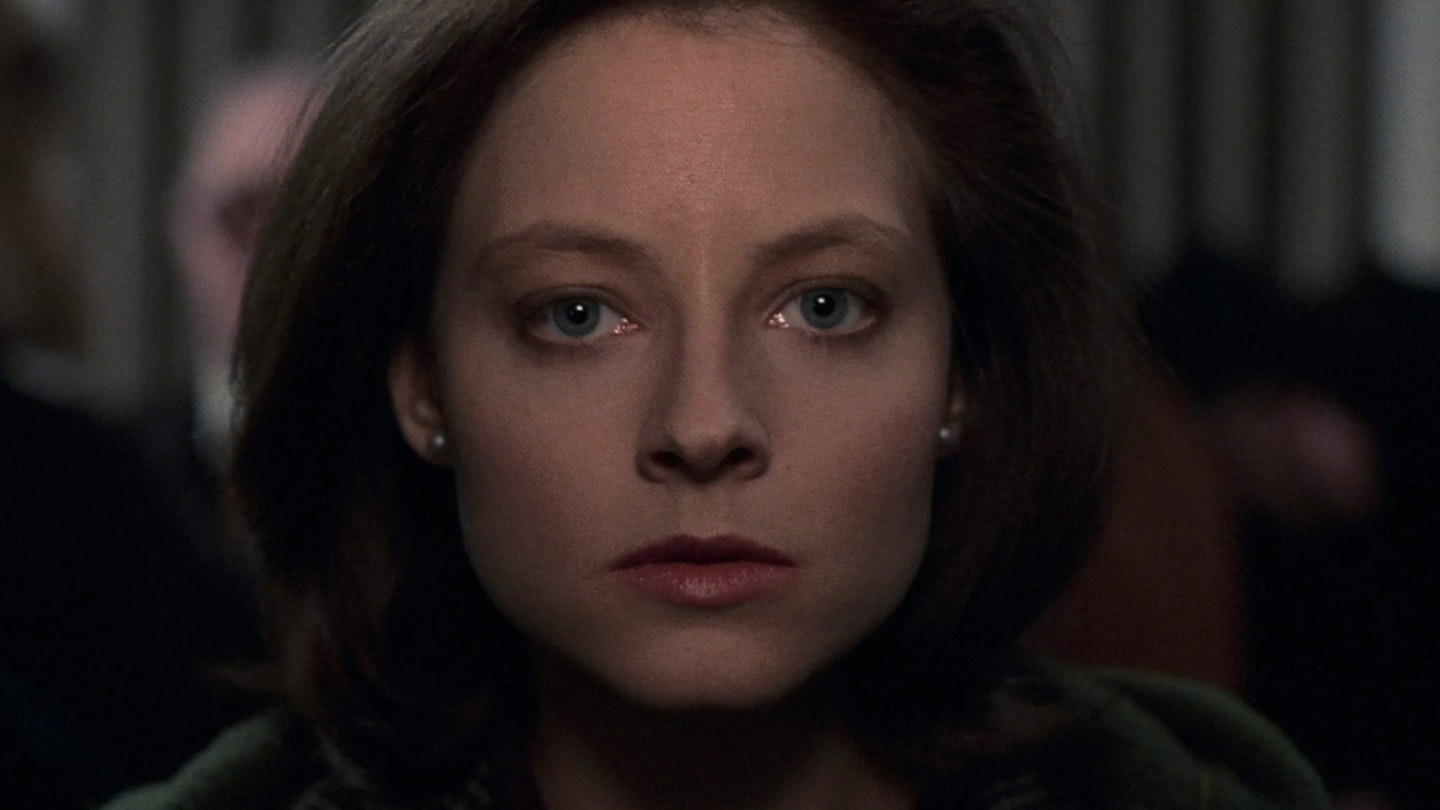
In order to elevate her performance in the film, Foster immersed herself in the daily routine of trainees at the FBI Academy at Quantico, trying her best to keep up with the physical and mental battering meted out to the young recruits. She met John Douglas, the man who runs the FBI's Investigative Support services, the foremost expert on serial killers in the US and chief assistant to Thomas Harris in creating the serial killers that permeate his books. (Foster did not, however, go to quite the same extremes as Scott Glenn, who, to prepare for his role as Jack Crawford, holed himself up in a room and listened to a recording of a pair of serial killers torturing and killing a victim. Glenn, somewhat green around the gills, now acknowledges that he may have gone just a shade too far on this one.)
And the one thing about the FBI that Foster really took to heart from her experiences at Quantico?
"That you can't rely on the MOs (Methods of Operation) when investigating serial killers," she shoots back. "This is especially true when you consider irrational crimes, those where people are whisked off the street and killed in strange places. Killers have been known to travel 3,000 miles to kill somebody and then travel 3,000 miles back. There are no clues. Makes no sense."
"It's not just a thriller" is Demme's summary of his extraordinary breakthrough movie. "They're out there, these serial killers, men who attack and kill women and the issue is barely addressed. Well, the point here is to address it."
And Jodie Foster's words on that fateful night she won her Oscar for her performance in The Accused and Gene Hackman lost his for Mississippi Burning perhaps sum it up best of all.
"Cruelty might be very human and it might be very cultural," said Foster, slowly surveying the upturned faces of her peers. "But it is not acceptable..."
This article was first published in Empire Magazine{
